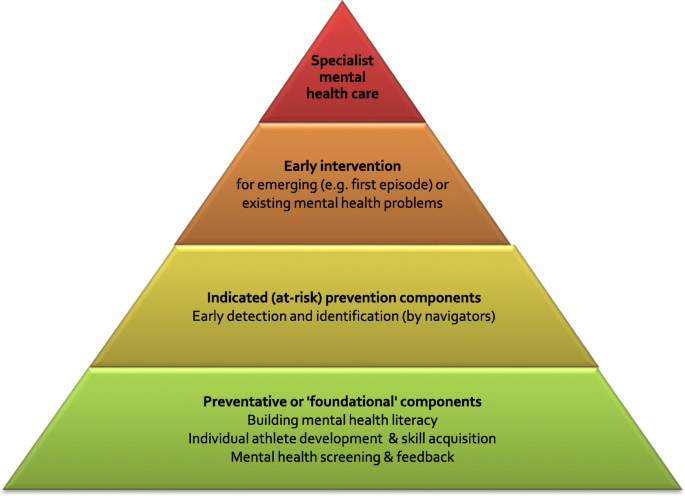In this article you will find:
The Game Changer: Functional Medicine for Injury Prevention and Peak Performance in Athletes
For athletes, pushing boundaries and achieving peak performance is a constant pursuit. But that pursuit can be hampered by a persistent foe – injuries. While traditional sports medicine focuses on treating injuries once they occur, functional medicine offers a proactive approach, aiming to prevent them altogether. Here’s how functional medicine empowers athletes to optimize their performance and build resilience against injuries.
Beyond Symptoms: A Holistic Approach to Athlete Health
Functional medicine goes beyond simply treating symptoms; it delves into the root causes of health issues. This personalized, holistic approach considers an athlete’s unique genetic makeup, environmental factors, lifestyle habits, and nutritional status.
By understanding these interconnected factors, a functional medicine practitioner can identify potential weaknesses or imbalances before they manifest as injuries. This allows for proactive interventions such as:
- Nutritional Optimization: Developing personalized nutrition plans to address any underlying nutrient deficiencies that could contribute to muscle weakness, fatigue, or delayed recovery.
- Stress Management: Chronic stress can wreak havoc on an athlete’s body. Functional medicine incorporates stress management techniques like meditation, yoga, or sleep hygiene to combat its negative impact on injury risk and overall health.
- Supplementation: Targeted supplementation like fish oil for inflammation, glucosamine for joint health, or specific B vitamins for energy production can support an athlete’s body under the demands of training and competition.
- Improved Gut Health: The gut microbiome plays a crucial role in overall health and recovery. Functional medicine can identify and address gut dysbiosis, promoting a healthy gut environment for optimal nutrient absorption and a stronger immune system.
 Injury Prevention Through Functional Movement Analysis
Injury Prevention Through Functional Movement Analysis
Traditional sports medicine often addresses injuries reactively. Functional medicine takes a preventative stance by employing functional movement assessments. These assessments go beyond simply looking at strength or flexibility; they analyze an athlete’s movement patterns for biomechanical imbalances or weaknesses.
Identifying these imbalances early on allows for targeted interventions such as:
- Corrective Exercise Programs: Based on the findings of the movement assessment, a functional medicine practitioner can design a personalized corrective exercise program to address specific movement dysfunction and improve overall biomechanics. This can significantly reduce the risk of injuries caused by repetitive stress or improper technique.
- Improved Flexibility and Mobility: Tight muscles or limited joint mobility can predispose an athlete to injuries. Functional medicine practitioners can identify areas of restricted mobility and incorporate targeted stretching or mobility drills into the athlete’s program.
- Postural Correction: Poor posture can lead to muscle imbalances and increased stress on joints. Functional medicine can address postural issues through exercises, ergonomic recommendations, or even physical therapy referrals, reducing the risk of injuries related to improper alignment.
Fueling Performance with Personalized Nutrition
Nutrition is the cornerstone of an athlete’s performance. But a one-size-fits-all approach doesn’t work. Functional medicine emphasizes personalized nutrition plans tailored to an athlete’s individual needs and goals. This might involve:
- Identifying Food Sensitivities: Hidden food sensitivities can negatively impact athletic performance and recovery. Functional medicine can utilize tests or elimination diets to identify any sensitivities that might be hindering the athlete’s progress.
- Optimizing Macronutrient Intake: Athletes have different macronutrient (carbohydrates, protein, fat) needs depending on their sport and training intensity. Functional medicine practitioners can assess these needs and create a personalized macronutrient balance for optimal performance.
- Micronutrient Optimization: Trace minerals and vitamins are essential for energy production, recovery, and overall health. Functional medicine can identify any deficiencies in these micronutrients and recommend targeted supplementation to address them.
- Hydration Strategies: Hydration is crucial for any athlete. Functional medicine can establish personalized hydration plans based on factors like sweat rate and training intensity, ensuring optimal hydration status throughout training and competition.
By addressing individual nutritional needs, functional medicine helps athletes fuel their bodies for peak performance while promoting a healthy and resilient foundation for optimal training and recovery.
 The Power of Sleep: Optimizing Recovery and Performance
The Power of Sleep: Optimizing Recovery and Performance
Sleep is not a luxury for athletes; it’s a necessity. Functional medicine recognizes the vital role sleep plays in recovery, injury prevention, and overall health. Here’s how it promotes optimal sleep for athletes:
- Identifying Sleep Disruptions: Functional medicine can address underlying issues that disrupt sleep, such as hidden food sensitivities, hormonal imbalances, or chronic stress. By addressing these concerns, athletes can achieve deeper, more restorative sleep.
- Sleep Hygiene Coaching: Developing healthy sleep hygiene habits, like establishing a regular sleep schedule and creating a relaxing bedtime routine, can significantly improve sleep quality. Functional medicine practitioners can provide personalized guidance and support in establishing these habits.
- Supplements for Sleep Support (Optional): In some cases, functional medicine practitioners may recommend natural sleep aids like melatonin or magnesium to support short-term sleep issues. However, the focus remains on addressing the root cause of sleep disturbances for long-term improvement.
By promoting quality sleep, functional medicine helps athletes recover faster, improve cognitive function and focus, and enhance overall performance.
Building Resilience: Mind-Body Techniques for Injury Prevention
The mind and body are interconnected. Functional medicine recognizes the impact of mental well-being on injury risk and recovery. Techniques like:
- Stress Management Coaching: Chronic stress weakens the immune system and can contribute to muscle tension and fatigue, increasing injury risk. Functional medicine practitioners can teach athletes stress management techniques like mindfulness meditation, deep breathing exercises, or cognitive behavioral therapy (CBT) to combat stress and enhance resilience.
- Visualization Techniques: Visualization can be a powerful tool for athletes. Functional medicine practitioners can help athletes develop visualization exercises to improve focus, enhance technique, and promote mental rehearsal for competitions.
By addressing the mental and emotional aspects of training and competition, functional medicine empowers athletes to build resilience and stay mentally focused, further reducing the risk of injuries caused by stress, anxiety, or lack of focus.
The Functional Medicine Team: A Collaborative Approach to Athlete Care
Functional medicine practitioners often work within a collaborative team environment. This team might include:
- Functional Medicine Doctors: These doctors are trained to take a holistic approach to health and leverage diagnostic tools to identify the root causes of health issues.
- Sports Nutritionists: They specialize in creating personalized nutrition plans for athletes to optimize performance and recovery.
- Physical Therapists: They can address specific muscle imbalances or movement dysfunctions identified through functional movement assessments.
- Mental Health Professionals: This collaboration allows athletes to address stress, anxiety, or other mental health factors that could hinder performance or increase injury risk.
By working together with other healthcare professionals, functional medicine practitioners ensure athletes receive a comprehensive and personalized approach to their health and well-being.
Conclusion: Optimizing Performance, Minimizing Risk: The Functional Medicine Advantage
Functional medicine offers a proactive approach to athlete health, focusing on preventing injuries before they occur. By addressing the underlying causes of imbalances and weaknesses, promoting optimal nutrition and sleep, and incorporating body-mind techniques, functional medicine empowers athletes to become stronger, more resilient, and achieve peak performance.
If you’re an athlete striving to reach your full potential, consider exploring the benefits of functional medicine. With its personalized, holistic approach, it can be the game-changer you need to dominate your sport and stay injury-free on your journey to athletic excellence.


 Injury Prevention Through Functional Movement Analysis
Injury Prevention Through Functional Movement Analysis

